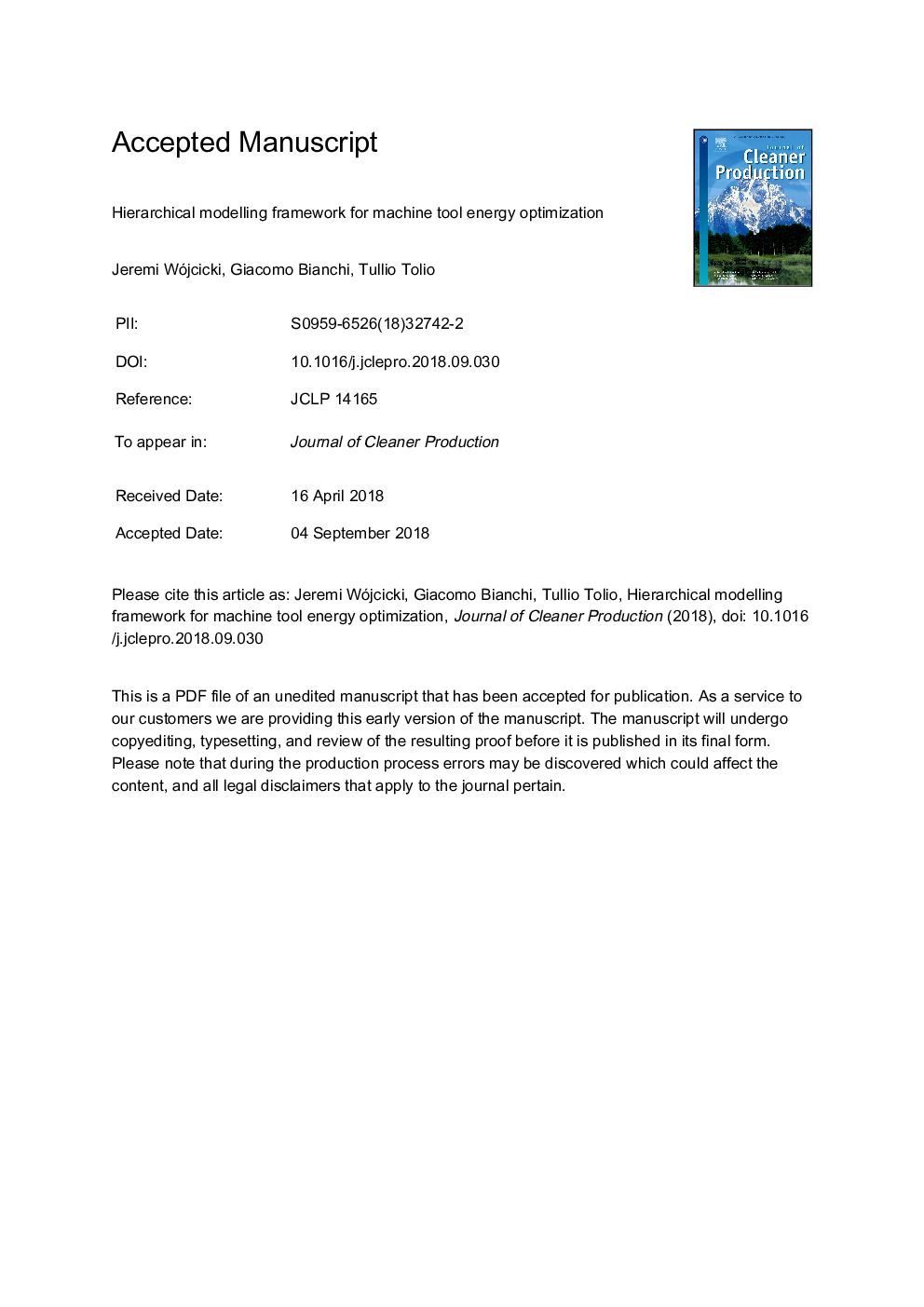| Article ID | Journal | Published Year | Pages | File Type |
|---|---|---|---|---|
| 10149314 | Journal of Cleaner Production | 2018 | 39 Pages |
Abstract
The study addresses sustainable manufacturing, focusing of efficiency management in machine tools. A novel approach to energy modelling and machining cycle optimization is introduced. It uses a hierarchical optimization approach, splitting machining cycles into smaller, independent tasks. The analysis starts at the level of workpiece design features, for which a variety of state-of-the-art energy models can be used to link process and machine tool parameters to the resulting energy use. The Pareto front resulting from local optimization of each feature is represented by functions relating execution time and the corresponding minimal energy consumption. This reduced information is passed to the higher levels of the task tree, up to processing units (in multi-spindle machines) and machine level. Propagation is performed through local optimizations of serial or parallel execution of the underlining tasks: under the specified assumptions, the merging process does not affect the global optimality of the solution. This approach strongly reduces problem dimension, allowing to postpone at machine level the optimal selection of all processing parameters. The proposed approach is therefore applicable to system wide analysis of multi-machine manufacturing systems, where machine and system level decisions are tightly coupled. A case study of an industrial flexible transfer machine, on which the developed methodology was applied, is analysed and discussed.
Related Topics
Physical Sciences and Engineering
Energy
Renewable Energy, Sustainability and the Environment
Authors
Jeremi Wójcicki, Giacomo Bianchi, Tullio Tolio,
